The US raised difficulties in aid to Ukraine, South Korea and China negotiated on urea, Iran and Cuba increased cooperation... are some notable international news in the past 24 hours.
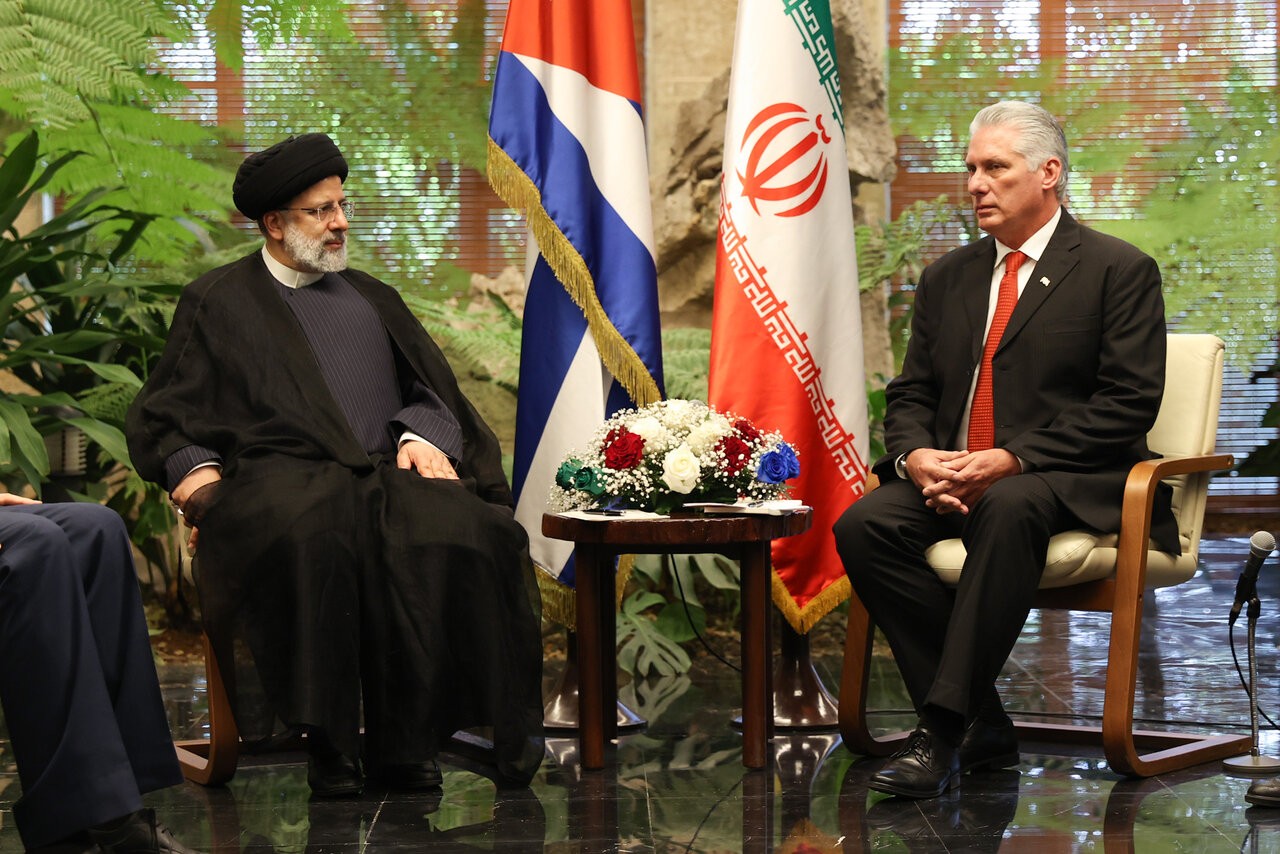 |
| Iranian President Ebrahim Raisi and Cuban President Miguel Diaz-Canel hold talks on December 4. (Source: The Tehran Times) |
The World & Vietnam Newspaper highlights some of the day's international news highlights.
* Russian general killed in Ukraine : Sharing on Telegram on December 4, Mayor of Voronezh city in southwestern Russia, Mr. Alexander Gusev said that Major General Vladimir Zavadsky, Deputy Commander of the 14th Army Corps of Russia, was killed in Ukraine. However, detailed information about General Zavadsky's death has not been disclosed. ( Reuters )
* Russia captures US infantry fighting vehicles in Ukraine : On December 4, the Telegram channel “Rybar” reported that the Russian army had for the first time captured a US Bradley infantry fighting vehicle (BMP) as a trophy. The vehicle belonged to the 47th Mechanized Brigade of the Armed Forces of Ukraine (VSU). Since the beginning of summer, this unit has lost more than 40 Bradley vehicles, first in the direction of Zaporizhzhia and then in the suburbs of Avdiivka.
“Russian soldiers were able to bring the American M2A2 ODS Bradley infantry fighting vehicle, which was previously shot down in the Avdiivka area, to the rear. In fact, this is the first infantry fighting vehicle (of this type) captured by the Russian side,” the source said.
Earlier, Western-made armored vehicles, including Bradleys in the VSU service in the Zaporizhzhia direction, encountered difficulties due to weather and terrain. They are now trying to advance to the Avdiivka front in small groups. (TASS)
* The White House “desperately needs” the aid money for Ukraine : In an interview with ABC News (USA), John Kirby, the White House National Security Council’s strategic communications coordinator, was asked whether President Biden would give in to the demands of Republican lawmakers. Accordingly, they believe that the “additional national security request” worth $106 billion for Ukraine and Israel must come with the condition of increased spending to ensure security on the US-Mexico border.
White House officials declined to answer the question, saying they “would not pre-empt the president’s decision.” According to Kirby, the immigration reform plan was presented “on the first day of the administration.” However, the Republican-led House of Representatives “basically ignored” the plan.
If US lawmakers are “serious about immigration reform, they must accept the president’s proposal. They must also pass our supplemental request, including the Indo-Pacific region, because all of it is important to our national security,” Kirby said. The White House official also urged Capitol Hill to “immediately” act to resolve the impasse over military aid policy. (RT)
* Bulgarian President vetoes bill to send armored personnel carriers to Ukraine : On December 4, President Rumen Radev returned to Parliament to further discuss the draft law approving the agreement to transfer 100 decommissioned armored vehicles to Ukraine free of charge.
“The reason for the veto is that lawmakers do not have detailed information about the donation, which prevents them from objectively assessing whether the equipment provided is still needed,” the Bulgarian Presidential Office said in a statement.
Last month, the Bulgarian Parliament ratified an agreement between the Bulgarian Interior Ministry and the Ukrainian Defense Ministry on the free delivery of a batch of used armored personnel carriers to Kiev. (Sputnik)
* Austrian official: The West must “ spend all its efforts ” for Ukraine : On December 3, in an interview with the Tagesschau newspaper (Germany), Colonel Markus Reisner of the Austrian armed forces warned: “Ukraine could lose if the West does not provide Kiev with the necessary support. This is a conflict of attrition. Everything is mainly decided by resources, not by spirit.”
According to him, European capitals have felt a “hangover” because “it was previously thought that supplying weapons to Kiev would be enough, but it is not. You cannot wage a conflict of attrition when you have exhausted all your resources.” According to him, the West must realize this.
“Europe does not seem to have realized the seriousness of the situation. Why? Because this (promises of support for Ukraine) will have to be combined with really significant military-economic efforts,” the Austrian military official said. (Sputnik)
| RELATED NEWS | |
 | Kiev prevents former President from visiting Hungary, military aid to Ukraine faces difficulties again? |
* Israel declares completion of ground operation in northern Gaza : On December 4, speaking on local military radio, Commander of the Israeli Armored Division, General Hisham Ibrahim affirmed that the Israeli Armed Forces (IDF) "have almost achieved their objectives in the northern region" and "are starting to expand ground operations to other areas of the Gaza Strip".
Meanwhile, AFP news agency quoted witnesses on the same day as saying that dozens of Israeli tanks entered the southern Gaza Strip, near the city of Khan Yunis, alongside armored personnel carriers and bulldozers. (Reuters)
* More than 400 Israeli soldiers killed in conflict with Hamas: On December 4, the IDF said that three more soldiers were killed in the Gaza Strip. Accordingly, the total number of Israeli soldiers killed in the ground offensive has reached 75.
The total number of Israeli soldiers killed since the start of the conflict now stands at 401. Most of them died in fighting on October 7, when Hamas militants crossed the border and attacked residential areas in southern Israel.
Earlier, Israel resumed its offensive after a humanitarian truce ended on the morning of December 1. According to Palestinian officials, 800 people in the Gaza Strip have been killed in the past three days due to IDF attacks. (Reuters)
* Fighting between IDF and Hezbollah continues : On December 3, the IDF and Hezbollah militants exchanged fire along the border for the third consecutive day. Israel said several soldiers were “lightly injured” when an anti-tank missile fired from Lebanon hit a vehicle in Beit Hillel in northern Israel. The IDF returned fire.
Meanwhile, Lebanon's Iran-backed Hezbollah movement said it had targeted Israeli positions with "appropriate weapons." (Reuters)
* Palestine calls on the international community to put pressure on Israel : On December 4, Al - Arabiya television channel (Saudi Arabia) quoted Palestinian Prime Minister Mohammad Shtayyeh as emphasizing: "We regret that (the international community) only asked Israel to reduce the scale of casualties (of Palestinians) instead of asking it to cease fire... Failure to punish Israel has led to more similar incidents... Israel is seeking to resettle Palestinians (in Gaza) to Rafah. But we ask the world to oppose this plan."
On the same day, the Israeli National Security Council issued a travel warning for dozens of countries, including the UK: “The threat level for many countries in Western Europe (including the UK, France and Germany), South America (including Brazil and Argentina), as well as Australia and Russia, has been raised to Level 2, with recommendations to increase precautionary measures. The threat level for countries in Africa (including South Africa and Eritrea) and Central Asia (including Uzbekistan, Kazakhstan, Kyrgyzstan and Turkmenistan) has been raised to Level 3, with recommendations to reconsider non-essential travel to these countries.” (Sputnik/TASS)
* White House: Israel is making efforts to protect civilians in Gaza : In an interview with ABC News (USA), White House National Security Council Strategic Communications Coordinator John Kirby said that Israel is "making efforts" to minimize the number of civilian deaths in Gaza.
US officials also confirmed that their intelligence agencies did not know any secrets, especially the detailed plan of Hamas for the attack on Israel on October 7. Last week, the New York Times (USA) reported that the Israeli government had obtained documents about the plan a year before the attack. (AFP)
* US supports Palestinians' right to self-determination : On December 4, WAFA news agency (Palestine) reported that Palestinian President Mahmoud Abbas had a phone call with US Vice President Kamala Harris. The two sides discussed the latest developments in Palestine and efforts to end Israel's actions against the Palestinians.
The White House statement on the same day said: "The Vice President reiterated US support for the Palestinian people and their rights to security, dignity, and self-determination. She emphasized our commitment to the two-state solution and said the Palestinian people must have a clear political vision."
The US Vice President raised the issue of a joint Palestinian governance mechanism after the end of the Hamas-Israel conflict and reiterated Washington's support for the goal of unifying the West Bank and the Gaza Strip, under the administration of the PA.
The call took place as Harris returned to Washington after attending the 28th Conference of the Parties to the United Nations Framework Convention on Climate Change (COP 28) in Dubai. US National Security Adviser Phil Gordon will travel to Israel and the West Bank this week for further discussions on the ongoing Israel-Hamas conflict. (Reuters)
| RELATED NEWS | |
 | Israel-Hamas conflict: British aircraft conduct surveillance in Eastern Mediterranean; Pope expresses regret |
Southeast Asia
* Philippine Vice President worries about “deal with the devil” with rebels: On December 4, writing on her personal Facebook page, Ms. Sara Duterte said: “Mr. President, the government’s statement with the NDFP in Oslo (Norway) is a deal with the devil. This force will take advantage of the peace talks to betray the government and deceive the public.” This is her rare criticism of the incumbent President.
The daughter of former President Rodrigo Duterte, who ended the talks in 2017, warned that the rebels could take advantage of the peace talks and be “disingenuous” in their search for a solution. She also urged current President Marcos Jr. to review and revise policies, including his decision to grant amnesty to members of the National Democratic Front of the Philippines (NDFP), the political wing of the Communist Party of the Philippines (CPP), and the New People’s Army (NPA), the armed wing of the CPP.
The Philippine government and rebel forces agreed last week to resume peace talks after a six-year hiatus to end the Southeast Asian nation's decades-long armed conflict. (Reuters)
| RELATED NEWS | |
 | Casualties continue to rise after explosion in Philippines |
Northeast Asia
* Chinese President calls for global unity : On December 4, the country's Foreign Ministry quoted Xi Jinping's speech welcoming the 2023 Imperial Springs International Forum in Guangzhou, Guangdong Province, emphasizing: "In the face of epochal and unprecedented changes, the global community must unite, constantly exchange experiences, and always be tolerant and open-minded, promoting mutually beneficial cooperation." According to the Chinese leader, countries should work together to build a better world. (TASS)
* South Korea to consult with China soon on urea export delay : South Korea's Ministry of Trade, Industry and Energy (MOTIE) said on December 4 that it will soon consult with the Chinese government on Beijing's suspension of urea exports to Seoul. Ministry spokesman Choi Nam Ho said South Korea confirmed that there were delays in customs procedures, but the cause was supply tension in China, not a "political issue".
The same afternoon, the Korean government held an inter-agency meeting with the Ministry of Trade, Finance and Foreign Affairs to discuss the issue. After the meeting, officials announced that they would promptly consult with Chinese partners to import the amount of urea that has completed customs procedures.
MOTIE confirmed that Korea's urea inventory is enough for about three months. Currently, Korea imports nearly 90% of its urea from China for use in diesel vehicles and other industrial purposes.
Previously, at the end of 2021, South Korea was heavily impacted by the disruption of urea supply after China restricted exports of this material amid a trade dispute with Australia. (TTXVN)
* North Korea calls for improving birth rate : Speaking at the 5th National Mothers' Congress in Pyongyang on December 3, North Korean leader Kim Jong Un stressed: "Preventing the decline of birth rate and taking good care of children are all our family duties when it comes to mothers." He also thanked mothers for their role in strengthening national strength, stressing: "I always think of mothers when carrying out the work of the Party and the State."
North Korea's population is now estimated at 25 million. The United Nations Population Fund estimates the country's total fertility rate, or the number of children born over a woman's lifetime, will reach 1.8 by 2023. That's high compared to neighboring South Korea, which is struggling to deal with a birth rate that fell to a record low of 0.78 last year, while Japan's is at 1.26. (KCNA/Reuters)
| RELATED NEWS | |
 | South Korea conducts live-fire drills with SM-2 missiles |
* German Chancellor asks Finance Minister to cancel attendance at COP28 : On December 4, a German government spokesman confirmed that German Vice Chancellor and Minister of Economy Robert Habeck will attend COP28 in Dubai as planned.
Chancellor Olaf Scholz had earlier asked Habeck to postpone his trip so he could focus on government negotiations on the 2024 budget. The German Constitutional Court had earlier rejected an initial plan to transfer 60 billion euros unspent during the Covid-19 pandemic to a “green economy” fund.
According to the plan, German Chancellor Olaf Scholz and Foreign Minister Annalena Baerbock may attend COP28 early this week. (TTXVN)
| RELATED NEWS | |
 | UN Secretary-General not satisfied with commitments at COP28 |
* Iran, Cuba sign important documents on bilateral cooperation : On December 4, writing on the Telegram channel, the Iranian government announced: "Within the framework of the visit of Cuban President Miguel Diaz-Canel, leaders and senior officials of Iran and Cuba signed 7 documents and memorandums of understanding on cooperation.
Iranian President Ebrahim Raisi and Cuban President Miguel Diaz-Canel also signed a joint statement on strengthening strategic bilateral relations... The memorandums of understanding and documents signed between Iran and Cuba cover the fields of science, technology, health, agriculture, energy, mining, communications and medicine.”
Recently, Mr. Diaz-Canel became the first Cuban leader to visit the Islamic Republic since 2001, when the late President Fidel Castro visited Tehran. (TASS)
Source


![[Photo] Special flag-raising ceremony to celebrate the 135th birthday of President Ho Chi Minh](https://vphoto.vietnam.vn/thumb/1200x675/vietnam/resource/IMAGE/2025/5/19/1c5ec80249cc4ef3a5226e366e7e58f1)
![[Photo] Party and State leaders visit President Ho Chi Minh's Mausoleum](https://vphoto.vietnam.vn/thumb/1200x675/vietnam/resource/IMAGE/2025/5/19/d7e02f242af84752902b22a7208674ac)

![[Photo] Party and State leaders attend the special art program "You are Ho Chi Minh"](https://vphoto.vietnam.vn/thumb/1200x675/vietnam/resource/IMAGE/2025/5/18/6895913f94fd4c51aa4564ab14c3f250)
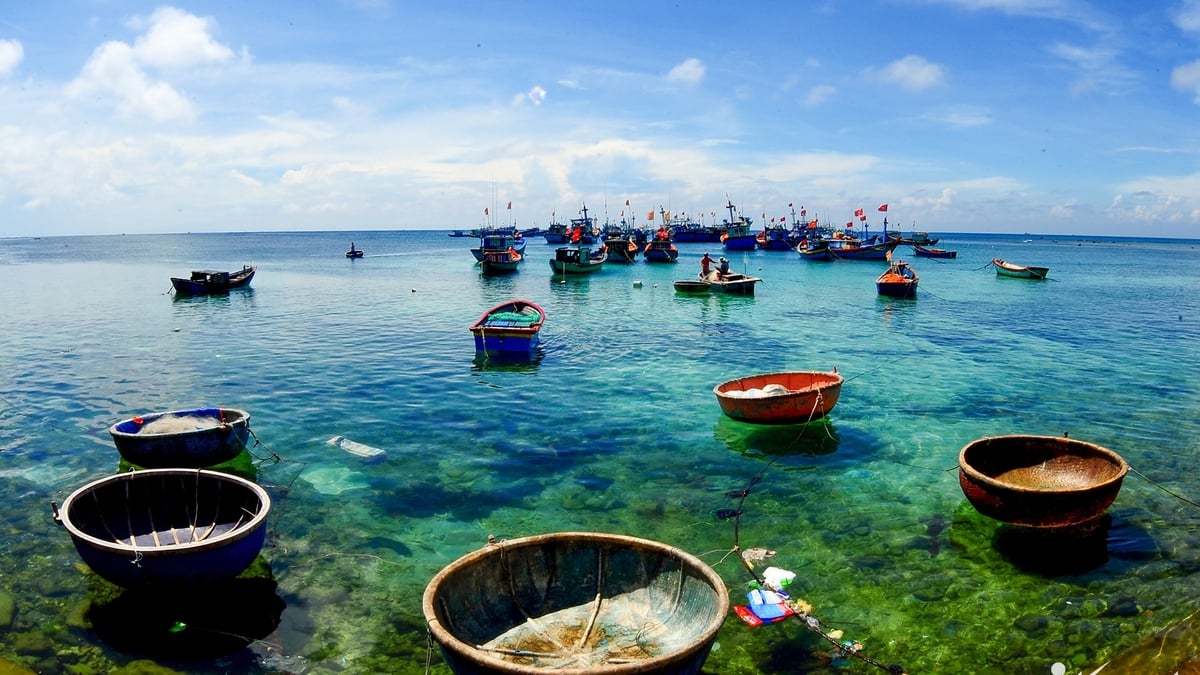




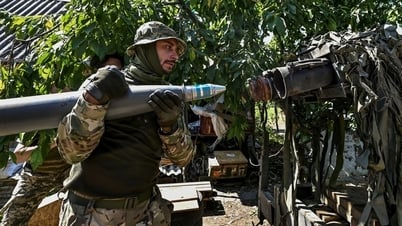

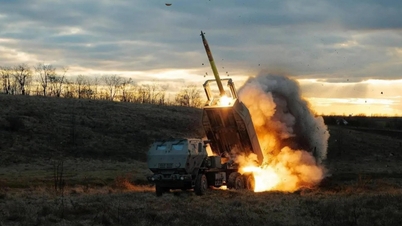
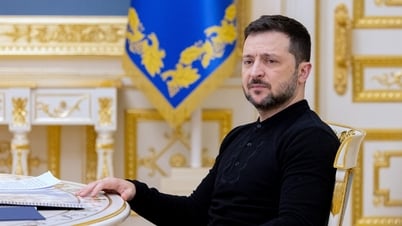

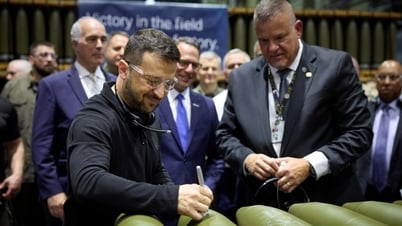
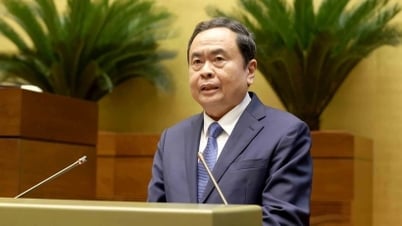

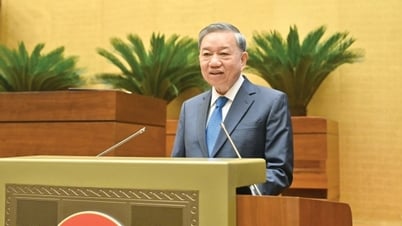
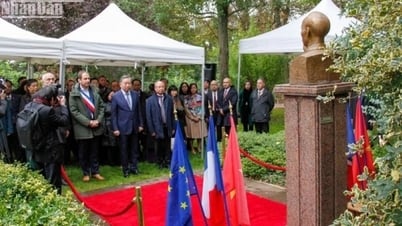


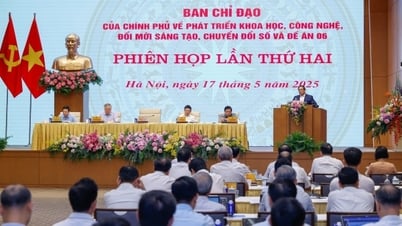




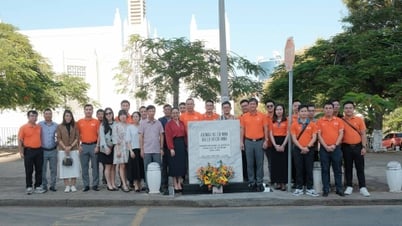


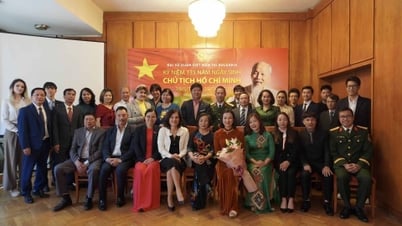
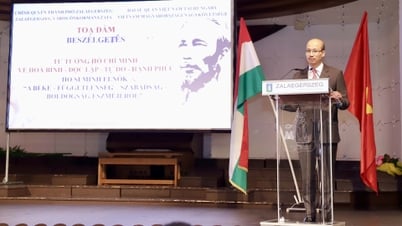
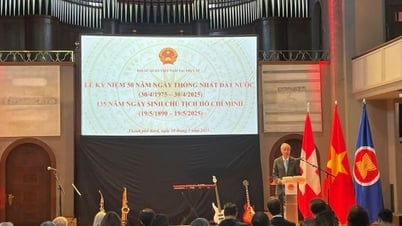














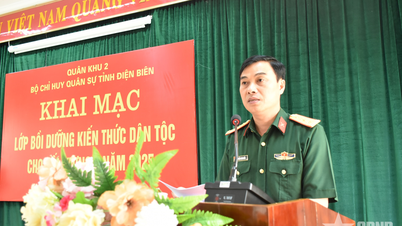



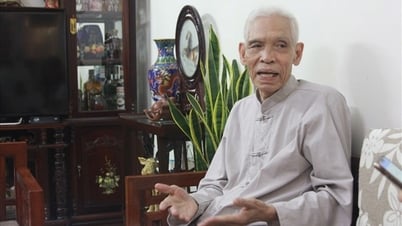

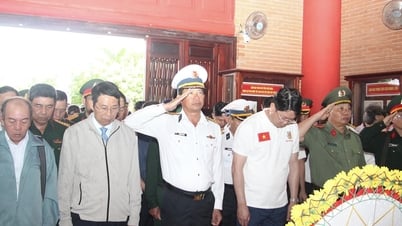



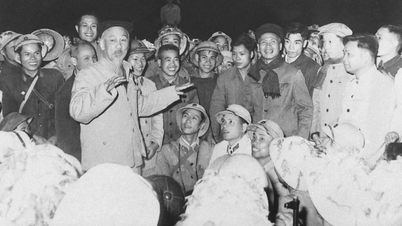

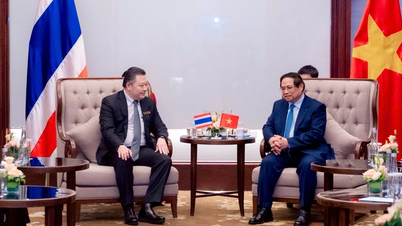






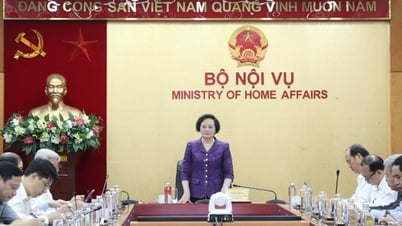

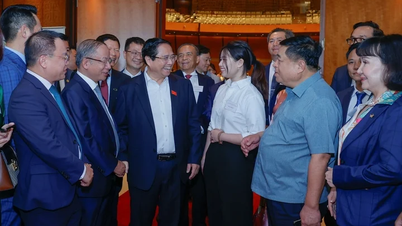






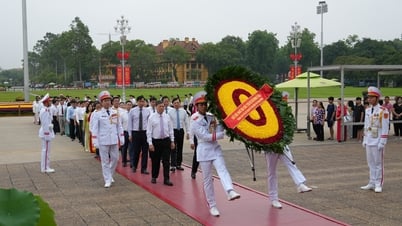


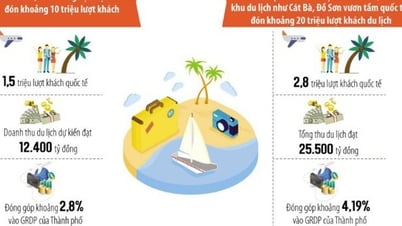
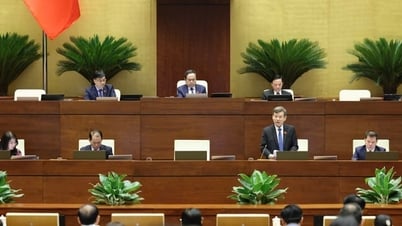

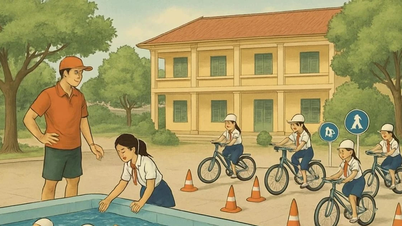


















Comment (0)